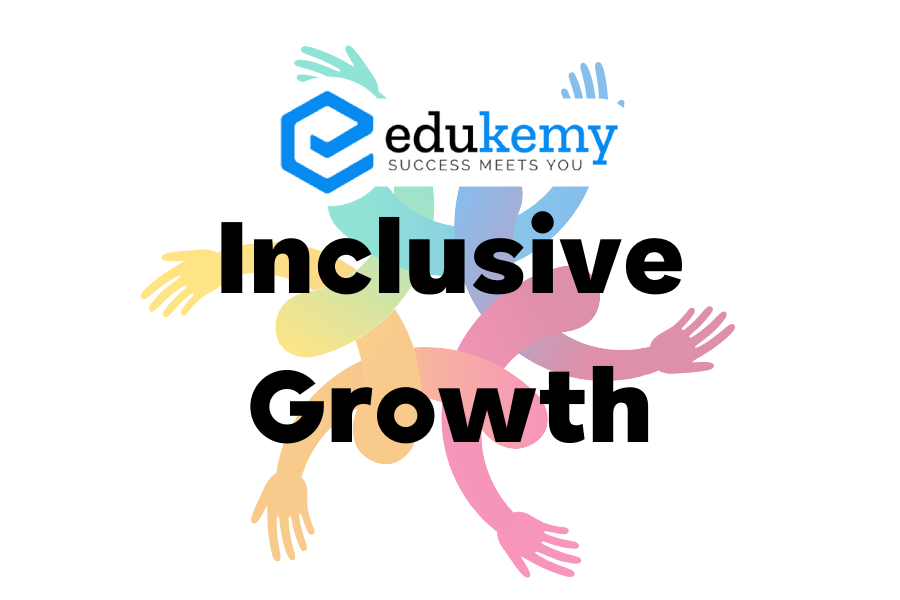
In India, numerous divides contribute to and perpetuate inequality, including rural-urban, rich-poor, gender-based, social divisions based on caste and ethnicity, developed versus underdeveloped regions, and the digital divide. The government’s socio-economic planning has centered around efforts to alleviate these divides, with a primary focus on achieving inclusive growth.
Government Initiatives:
- Diverse Divides Targeted:
- The government recognizes and addresses divides such as rural-urban, rich-poor, gender-based, social divisions, regional disparities, and the digital divide.
- Priority on Inclusive Growth:
- Achieving inclusive growth is a key priority in the government’s agenda.
Programs and Schemes:
- Employment Opportunities:
- Various programs and schemes aim to create better employment opportunities, strengthen social infrastructure, and provide basic amenities like water, electricity, roads, sanitation, and housing for all sections of the population.
- Key Initiatives:
- Programs such as the Mahatma Gandhi National Rural Employment Guarantee Act (MGNREGA), Pradhan Mantri Awas Yojana (PMAY), Pt. Deen Dayal Upadhyaya Grameen Kaushalya Yojana (DDU-GKY), and Deen Dayal Antyodaya Yojana National Urban Livelihoods Mission (DAY-NULM) are implemented to create additional employment opportunities, directly and indirectly benefiting from the demographic dividend.
- Sectoral Focus:
- Strategies involve promoting labor-intensive sectors, including agro-based industries, textiles, and Medium, Small and Micro Enterprises (MSMEs). Emphasis is also placed on the growth of start-ups.
- Social Protection:
- Under Ayushman Bharat, over 10 crore poor and vulnerable families (approximately 50 crore beneficiaries) receive coverage of up to 5 lakh rupees per family per year for secondary- and tertiary-care hospitalization.
Government’s Approach:
- Social Infrastructure Focus:
- According to the Economic Survey 2017-18, the government assigns utmost priority to social infrastructure, including education, health, and social protection, to engineer inclusive and sustainable growth in India.
In conclusion, the government’s commitment to inclusive growth is evident through a range of programs and schemes that target various divides, providing employment opportunities, social infrastructure, and basic amenities to ensure comprehensive development for all sections of the population.
FAQs
1. What is inclusive growth?
- Inclusive growth refers to economic development that benefits all members of society, particularly those who are marginalized or disadvantaged. It emphasizes reducing inequality and ensuring that the benefits of economic growth are shared equitably among all segments of the population.
2. Why is inclusive growth important?
- Inclusive growth fosters social stability, reduces poverty, and promotes sustainable development. By ensuring that all members of society have access to opportunities for economic advancement, it can help reduce disparities, enhance social cohesion, and build more resilient communities.
3. How can inclusive growth be achieved?
- Inclusive growth can be achieved through policies and initiatives that promote equitable access to education, healthcare, employment, and financial services. This includes investing in infrastructure, expanding social safety nets, implementing progressive taxation, and fostering an enabling environment for entrepreneurship and innovation.
4. What are the benefits of inclusive growth?
- Inclusive growth can lead to higher levels of overall economic growth, as it taps into the full productive potential of all members of society. It also contributes to social cohesion, reduces poverty and inequality, enhances political stability, and promotes long-term sustainable development.
5. What are some challenges to achieving inclusive growth?
- Challenges to achieving inclusive growth include structural barriers such as discrimination, inadequate access to education and healthcare, limited job opportunities, uneven distribution of wealth, and lack of political will. Addressing these challenges requires comprehensive policy interventions and sustained efforts from government, civil society, and the private sector.
In case you still have your doubts, contact us on 9811333901.
For UPSC Prelims Resources, Click here
For Daily Updates and Study Material:
Join our Telegram Channel – Edukemy for IAS
- 1. Learn through Videos – here
- 2. Be Exam Ready by Practicing Daily MCQs – here
- 3. Daily Newsletter – Get all your Current Affairs Covered – here
- 4. Mains Answer Writing Practice – here

